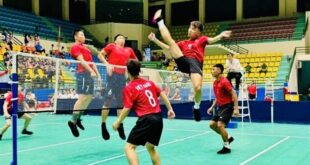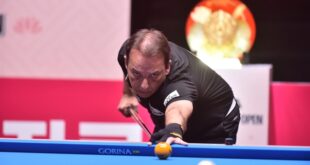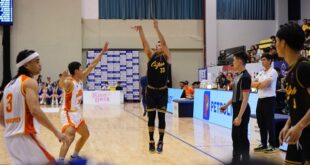For many years, the doping problem has haunted athletes and left a stain on the image of Vietnamese sports.
At least six Vietnamese athletes tested positive for banned substances while competing at SEA Games 31 hosted in Vietnam in May, the organizers announced this month.
The World Anti-Doping Agency (WADA) is waiting for the second test, but the chance is high that they will extend the story of Vietnam’s doping problem that started two decades ago.
On April 24, 2004, former sports minister and head of the Vietnam sports committee Nguyen Danh Thai signed the Copenhagen Declaration on anti-doping in sports. This made Vietnam the 106th country to take part in this declaration, under the supervision of World Anti-Doping Agency (WADA). By September 2022, 193 countries and territories have signed the declaration.
The decision was made not long after the first doping cases were detected at SEA Games 22 hosted in Vietnam in 2003. Four Vietnamese athletes, Hoang Hong Anh (canoeing), Pham Thi Diu and Pham Toan Thang (diving), and Nguyen Mai Quynh (athletics) tested positive for doping.
Quynh, who was 18 in 2003, explained that three days before competition, she had a flu and took the flu medicine. The track and field athlete said there may have been banned substances in the medicine that she took. Despite the explanation, Quynh and others were tested positive for stanozolol and testosterone, which are not found in flu medicine.
In a speech after Vietnam joined WADA, head doctor of the Vietnam medical team Le Quy Phuong said athletes should be taught how to fight the temptation of achieving better performance via doping because it was not real. The lack of doping knowledge among coaches and athletes can lead to unfortunate doping cases.
However, Vietnam could not eliminate its doping problem. The most notable case is of gymnastics star Do Thi Ngan Thuong at the 2008 Beijing Olympics.
 |
|
Gymnast Do Thi Ngan Thuong competes at the 2012 Olympics, one year before her retirement. Photo by AFP |
After the qualifiers in China, Thuong, who was 19, tested positive for furosemide, a banned substance. She was disqualified from the tournament and received a one-year ban. This penalty is the minimum for a doping athlete since Thuong did not use furosemide on purpose. She explained that she wanted to lose weight so she took diuretics without telling her coach.
For most athletes, failing a doping test means the end of their career. In 2010, shocking news came when 2008 Olympic weightlifting silver medalist Hoang Anh Tuan tested positive for oxilofrine at the world championship. This substance is not used for enhancing performance but is still banned.
Tuan explained that he probably got the substance by drinking bottled water in China. Initially, he was banned for four years, but Vietnam asked to reduce the penalty to two years. However, this incident put an end to Tuan’s international career.
 |
|
Weightlifter Hoang Anh Tuan competes in the 2008 Olympics before getting a doping ban. Photo acquired by VnExpress |
Another world-class weightlifter of Vietnam who also ended his career because of doping is Trinh Van Vinh. In February 2019, the International Weightlifting Federation announced that Vinh had tested positive for testosterone and another banned substance. He was banned from competition for four years.
Some Vietnamese athletes did manage a comeback after a doping ban. In July 2008, bodybuilder Nguyen Thi My Linh tested positive for a banned substance before the Asian championship. She was initially banned for two years but later asked for the term to be reduced to one year because the substance was an ingredient in the medicine she used to treat her illness. After returning from the ban, she immediately won two Asian silver medals in 2009 and 2010. However, cases like Linh are very rare.
In the coming time, the list of Vietnamese athletes who dope is likely to get extended, with the SEA Games 31 incident. Among the six who tested positive for banned substances are two runners winning gold and silver medalists at the tournament.
They can be stripped of their titles and banned from competition.
According to experts, after 18 years of joining WADA, Vietnamese athletes will no longer receive light penalties for “lack of doping knowledge” as before.
- Reduce Hair Loss with PURA D’OR Gold Label Shampoo
- Castor Oil Has Made a “Huge” Difference With Hair and Brow Growth
- Excessive hair loss in men: Signs of illness that cannot be subjective
- Dịch Vụ SEO Website ở Los Angeles, CA: đưa trang web doanh nghiệp bạn lên top Google
- Nails Salon Sierra Madre
 VnExpress News The News Gateway of Vietnam
VnExpress News The News Gateway of Vietnam





